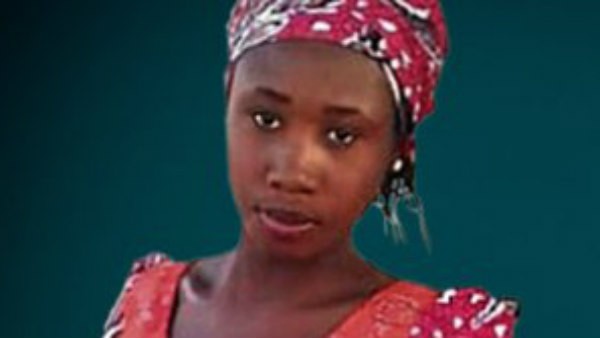WHEN COMMUNITIES HEAL TOGETHER
BOLUWATIFE ADETOKUNBO writes on the quiet revolution transforming mental healthcare in Nigeria’s conflict zones
In Borno State, where insurgency has left deep scars, Dr. Fatima Abba Ali, an AIG Public Leaders Programme alumnus, is pioneering a community-based approach that is bringing mental health services to thousands of children who would otherwise go unnoticed and untreated.
It is a bright morning at a primary health centre in Jere, a local government area in Borno State. Community Health Extension Workers (CHEWs) equipped with tablets and laptops are meeting with young people, their fingers moving across screens as they conduct mental health assessments using digital tools that is changing the landscape of care in this region.
Among them was Y.J.K., a bright student whose life took a challenging turn after losing his father to Boko Haram violence as a toddler. Though he excelled academically, his behaviour had begun to change in recent years—withdrawing socially, staying out late, sleeping excessively, and watching his grades decline.
“Without this community screening, his condition might have remained undetected until it became far more severe,” explains Dr. Fatima Abba Ali, the visionary Consultant Psychiatrist behind the Mentaccess project, which she upgraded and expanded as her reform project during her time as a participant in the AIG Public Leaders Programme, a capacity building initiative of the Aig-Imoukhuede Foundation facilitated by the Blavatnik School of Government, University of Oxford. “Instead, he was referred to the Federal Neuropsychiatric Hospital, diagnosed with Social Phobia and substance dependence, and received the treatment he needed.”
Today, Y.J.K. is back in school and thriving—one success story among the more than 29,000 children and adolescents who have been screened through this groundbreaking initiative,
Catching Them Young.
“Research consistently indicates that more than half of mental health disorders emerge during childhood or adolescence,” Dr. Fatima explains. “Borno State has endured over a decade and a half of security challenges, placing children and adolescents at the heart of this crisis.”
This reality formed the foundation of Mentaccess, which operates on a simple yet powerful premise: early intervention saves lives. “Why not catch them young?” she asks, a question that has become the project’s unofficial motto.
The methodology is innovative yet practical. At its core is a three-tier system that begins with community health workers conducting screenings using the Mentaccess digital tool —a mobile tool that enables real-time assessment of mental health conditions, even in areas with intermittent internet connectivity.
The Power of Community Trust: What makes this approach revolutionary is how it leverages existing community structures and trusted individuals to overcome long-standing barriers to mental healthcare.
“Previously, seeking help for mental health concerns was often a difficult journey marked by stigma and lack of awareness,” Dr. Fatima notes. “Individuals frequently explored numerous avenues, such as spiritual and traditional healers, often delaying or entirely missing appropriate care.”
The first tier of the Mentaccess system places Community Health Workers—individuals already known and trusted within their communities—at the frontline of mental health detection. They use the digital screening tool to identify potential issues and provide basic care for mild cases, while referring more complex situations up the care pathway.
For the second tier, specially trained Psychiatric Rehabilitation Providers deliver more intensive counselling. The third tier connects patients with psychiatrists at the Federal Neuropsychiatric Hospital Maiduguri, sometimes through teleconsultation services for those in remote areas.
The Mentaccess digital tool is an important innovation that can address the mental health service gap in rural communities. It enables real-time screening that guides non-specialist health workers in identifying mental health disorders.
“Worldwide, we are witnessing how digital tools are being used to better healthcare access,” Dr. Fatima says. “The Mentaccess digital tool allows operators to know the severity of cases, providing counseling and other basic psychological treatments for mild cases, and indicating cases that need referral to specialists.”
This technological solution has not been without challenges. In areas where internet connectivity is inconsistent—often due to ongoing security issues, real-time data collection can be delayed. The project has adapted by developing offline functionality and establishing physical referral networks when digital communication is not possible.
Perhaps the most delicate aspect of bringing mental health services to traditional communities is navigating cultural attitudes. Here again, Dr. Fatima’s approach demonstrates profound wisdom.
“We use indigenous healthcare workers who understand the nuances between various cultures in the state,” she explains. “Efforts were also made to establish relationships and understanding among community gatekeepers, such as traditional leaders, spiritual leaders, and institutional leaders.”
This cultural sensitivity extends to how mental health concepts are communicated. Rather than imposing external frameworks, the project identifies and encourages culturally healthy attitudes while gently discouraging stigmatising beliefs through awareness campaigns.
A Message of Hope: When asked about the most important message that needs to reach rural communities regarding mental health, Dr. Fatima is clear: “Mental health disorders, just like physical health illnesses, are treatable with appropriate treatment. People with mental health challenges should not be stigmatised as it can happen to anyone.”
She emphasises that mental health conditions arise from a complex interplay of biological, psychological, and social factors—from physical illness and psychological trauma to financial difficulties. This holistic understanding informs the project’s approach to treatment and prevention.
The AIG Public Leaders Programme, facilitated by the Blavatnik School of Government, University of Oxford, was instrumental in helping Dr. Fatima upgrade and implement the Mentaccess project. The programme, designed to support transformational public sector leaders, provided her with the resources, mentorship, and network needed to bring her vision to life.
“As an alumna of the AIG Public Leaders Programme, I was able to transform and upgrade the project to a more concrete reform that’s now changing thousands of lives,” Dr. Fatima shares. “The programme’s emphasis on evidence-based approaches and sustainable solutions has been reflected in every aspect of Mentaccess.”
Now operating in six Local Government Areas in Borno State—MMC, Jere, Monguno, Chibok, Mafa, and Biu—the Mentaccess project demonstrates how innovative approaches can transform mental healthcare delivery even in the most challenging environments.
The project is now expanding to include school-based interventions, training teachers to recognise early signs of mental health issues in their students. Though this component is still in its early stages, Dr. Fatima is optimistic about its potential impact.
Mental health challenges do not exist in isolation, and neither do their solutions. As Dr. Fatima’s work demonstrates, community involvement is essential for creating sustainable change.
Here’s how you can contribute to better mental health outcomes in your community: One, learn to recognise signs of mental health challenges in children and young people. Two, speak openly about mental health to reduce stigma.
Three, create safe spaces where children and adolescents feel comfortable discussing their feelings. Four, support community initiatives that promote mental wellbeing
Mental health is everyone’s business. In Dr. Fatima’s words: “Communities are an important part of social support and have an important role in the promotion of mental health.”
Adetokunbo writes from Maiduguri













